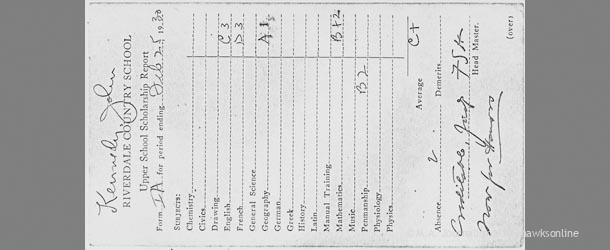Pass/Fail classes encourage college student exploration, but do they work in high school?
“It was biology,” recalled history teacher Elizabeth Van Pilsum. “Science is not my thing. We were all in the lab and the teacher gave us each a mouse.”
“The experiment, if you can call it that,” she said, “was that we were going to make some mice super, super, freezing cold with dry ice, and the other mice super, super, super, hot and then watch their behavior.”
The behavior of the two mice was exactly what Van Pilsum had expected. the cold mouse curled up to stay warm, and the hot mouse started licking himself like crazy to drench his body in order to cool down.
“It was heartbreaking,” Van Pilsum explained, “I had a conniption; [a] meltdown. I let them all out.”
Yelling at the teacher, Van Pilsum proceeded to open all the mouses’ cages until she was dismissed from the classroom.
“It was horrible,” she said. “She failed me.”
Since the class was a requirement, Van Pilsum retook it as a pass/fail. “I thought, ‘I won’t fail, I’m not getting an A.'”
She said it helped stress-wise, to know she didn’t have to do great, just well enough.
Pass or fail classes are just what they sound like: instead of earning a letter grade the student receives either a passing or failing grade.
These classes are often used in college courses; typically, anything below a D fails you and anything above lets you pass the class.
This is helpful for college students because they have the opportunity to explore classes outside their major. Having a pass/fail class allows the student to focus on learning something new without as much stress.
Does this make sense for high schools though? Can pass/fail grades really represent a student accurately on their transcript? Admissions officers at Stanford University, Colorado College and Bethel University gave their input on how they view pass/fail classes for high school students.
All three explained that pass/fail classes don’t tell them much about the student’s performance in the class.
“We read the context,” said a Stanford admissions officer. “It depends [on] the class, [on] the curriculum that the student [has taken] and the situation of the student.”
Stanford said that if a student took a class pass/fail they found it helpful to talk to the college counselor at the high school to clarify the student’s situation.
The application essay is also important in helping the college understand a student’s situation.
All three colleges reported that for academic classes such as math, science, English etc, the colleges really prefer a letter grade.
“Pass/fail depends on what course it is, based off of the curriculum for the course,” explained Bethel college admissions officer Geraldine Mpetey, “but we don’t look at it individually in a negative light.”
Classes such as study hall, health, gym or religion are often taken pass/fail in high school. Mpetey said that they don’t look at these grades in a bad light. Colorado college admissions officer Kathy Coffee also said that pass/fail classes aren’t necessarily looked at poorly.
“I wouldn’t say [that it makes us] “suspicious” [to see a pass/fail grade on a transcript] no,” explained Coffee, “It’s just hard to evaluate.”
English teacher Robyn Westrem said that it was helpful to take a required class she wasn’t strong in with the pass/fail system during college. However, she saw negative effects in her efforts.
“It was a huge lecture hall, and of course I could hide pretty well,” explained Westrem. “The pass/fail let me off the hook for sure, and I wish that I had spent more time paying attention to it. It was really difficult stuff, but I wish I’d paid more attention and tried harder. In college you should just be soaking up all the information you can.”
Freshman Sara Bakke said that the hardest class for her right now is English because of the challenging books they’re reading.
Bakke said that if she were taking the class pass/fail she would pass it. She also explained that her effort in the class may not be as high were it pass/fail.
“I would still try to do well, the best that I could, but I guess it wouldn’t necessarily matter if I do super well in comparison to just pretty good,” Bakke said, adding that she doesn’t think she’d put as much time into studying either. Also, she doesn’t think she’d learn and remember more if the class was pass/fail, even though she wouldn’t have to worry about a letter grade.
“I think that I learn information better if I had a letter grade,” she said, “because then I work hard to memorize it, and I just have to do that much better.”
Pass/fail grades can be helpful under the right circumstances. Making sure that everyone – college counselors, admissions officers, teachers, and students are on the same page is crucial for the student’s success. When considering if a pass/fail class is the right fit, make sure to take everything into account.

